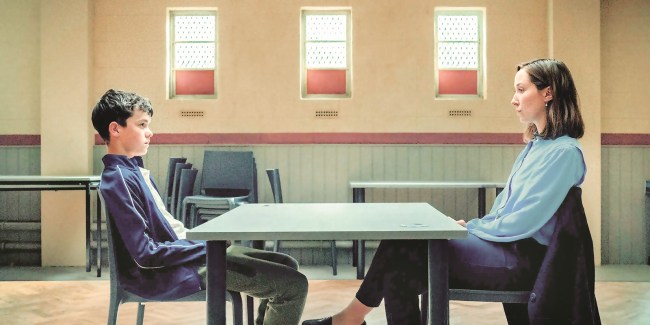Opinion Emmy wins for Owen Cooper, ‘Adolescence’: A turning point for telling teen stories
The show’s wider success proves that there is an audience for stories about young people told with greater complexity
 Owen Cooper (left) is the youngest male performer to win an Emmy for his role in the Netflix series, 'Adolescence'
Owen Cooper (left) is the youngest male performer to win an Emmy for his role in the Netflix series, 'Adolescence' A 15-year old boy just made history at the 77th Primetime Emmy Awards. On September 14, Owen Cooper became the youngest male performer to win an Emmy for the Netflix series Adolescence. He won the award for the Best Supporting Actor in a Limited/Anthology Series or TV Movie for his portrayal of Jamie Miller, a young boy arrested for the murder of a girl classmate in a psychological crime drama that gripped audiences around the world when it was released in March this year.
Previously, the youngest Primetime Emmy Award winner was Roxana Zal. She won the honour in 1984 at the age of 14 for her titular role in the television film Something About Amelia.
The recognition for Cooper and the team behind Adolescence at the Emmy may be a turning point in how teen stories are viewed and presented on television. The actor’s speech later reflected the shock and disbelief he felt at his win. He credited his drama classes and noted that the award belongs to “the people behind the camera”.
The larger story of the Emmy night, however, was the show Adolescence, which won in eight categories, including the Outstanding Limited/Anthology Series. The win brings with it validation for television about teenage lives, which is often sidelined.
Unlike glossy teen dramas that usually revolve around the themes of rebellion, romance, bullying, coming of age, Adolescence offers an unflinching take on adolescent life. It explores peer pressure, changing family dynamics, and how digital toxicity can corrode a child’s world. Jamie cannot be classified into the neat categories of villain or victim. He is fragile, yet combustible, someone navigating trauma with no clear path to redemption.
The show is shot in extended single takes. This makes the viewer’s experience inescapably raw — evoking a sense of claustrophobia and anxiety. This approach helps break down the long-standing assumptions about what youth-centred shows should entail. Adolescence makes the case that teenage struggles — crime, isolation, radicalisation, abuse — deserve the same seriousness in narrative that adult dramas demand. For years, teen dramas have been treated as “lighter entertainment” — known for their popularity, not for depth. Adolescence’s victory confirms the shift is being embraced by the voters, critics and audience alike.
As Jamie, Cooper avoids the cliches of teen angst. Instead, he portrays a young person pulled in contradictory directions — vulnerability, invisibility and danger.
In India, too, where debates about juvenile crime and online influence frequently make it to the headlines, television and cinema often respond with either moralising, shaming or melodrama. Adolescence recognises the complexity of human nature and adolescent minds, without being preachy. It suggests that audiences are ready for depictions of teenagers as multi-layered human beings. They are more than mere archetypes.
anusree.kc@expressindia.com






